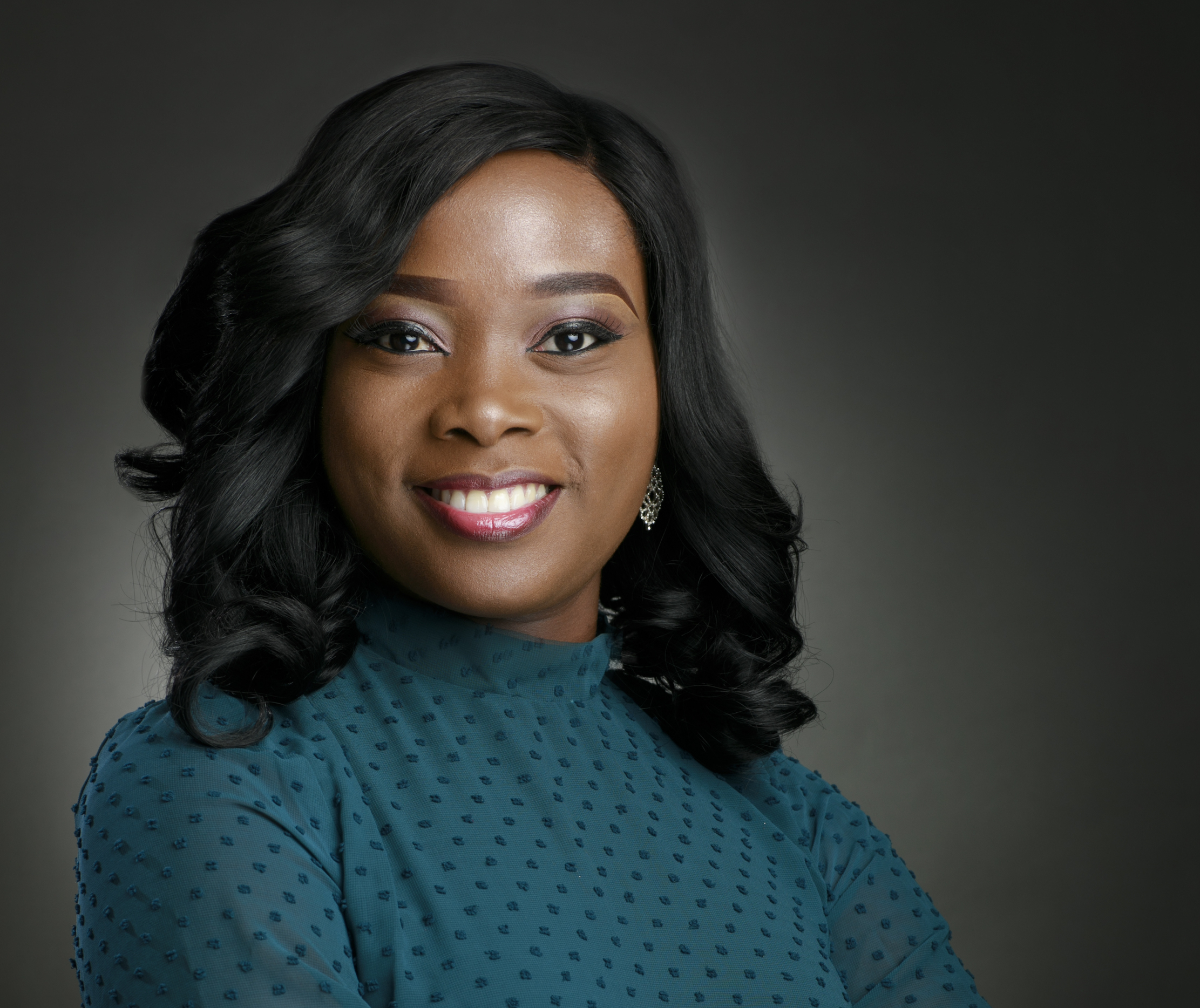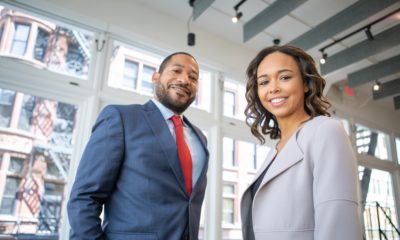Features
Acumen Academy: Riding the WAVE Towards Ending Youth Unemployment in Nigeria

When Acumen Fellow, Molade Adeniyi, moved back to Nigeria over a decade ago, one reality stood out amongst others; she couldn’t ignore how her classmates from high school struggled to get decent employment. “Their trajectories were very different from mine,” Molade explains. As an oncology pharmacist who had been practising in the United Kingdom, accessing decent work had never been a challenge for Molade, which made her curious about why others’ experiences in Nigeria were different from hers.
She would begin asking questions and soon realise that the situation was not unique to her high school classmates alone. “I found that my nanny, whose three children were of work-ready age, could not find decent work. There was also my parents’ driver whose children were locked out from job opportunities.”
As she dug deeper, Molade uncovered a common pattern. “My access to quality education and international exposure played a role in the types of opportunities I got. And beyond access, the people most affected did not have a university degree.”
For Molade, the status quo screamed injustice.
Challenging the Status Quo
The unemployment rate among young Nigerians between 15 and 34 years old is 42.5%. “When you speak to your own or others’ extended families, there are often one or two persons without work even after completing university level education.”
The World Bank forecast that by 2050, 50% of the population in Africa will be under the age of 25. Molade describes the implication of these statistics as a “powder keg waiting to be set on fire.” “In a normal climate, this youth bulge would be a great thing for any economy. However, in a context where there are not enough job opportunities for this growing population, people will look to other means to create a livelihood for themselves and their families.”
Seeking to directly solve the youth unemployment problem, in 2019, Molade took the role of CEO at West Africa Vocational Education (WAVE). The possibility of “helping people move from point A to point B was compelling to me,” Molade says.
WAVE works to solve youth unemployment and level the playing field for work-ready youth through a two-pronged approach. First, WAVE focuses on upskilling young people, and either matches them with new job opportunities or supports them in establishing their own businesses.
Molade learned she had a passion for connecting with students during her previous role as a pharmacist and teacher practitioner, “The goal then was to bridge the gap between classroom and practice for university students.”
The differentiating factor in this context is the students’ profiles. “About 60% of our students are high school graduates from low-income families who, most often, cannot afford a dollar bus fare to the WAVE Academy. 40% have never seen a computer before joining the program. — this is bothersome considering we are in 2023.”
But upskilling students with these types of profiles didn’t pose as much of a challenge as recruiting young people who are self-aware about the skills they lack today, with the humility to learn in order to improve their futures.
According to Molade, “this is significant because the job opportunities are there — especially among micro and small businesses — but what’s lacking are people with the right skills. Each year, we’re only able to fill 60% of the roles that we get and the reason is we cannot find people with the skillset the roles demand. Our interventions, therefore, include coaching and mentoring, which focuses on making our students employment-ready.”
WAVE’s second phase of intervention is to support organizations to hire right. “We re-orient employers to focus on competence over credentials, particularly for entry-level positions.”
Over the last decade, WAVE has provided job opportunities to 70% of its 5,000 graduating students through its employer partner network of 800 organizations. Over time, WAVE has also demonstrated how hiring biases can impede business growth, a process Molade says can be “tedious and painfully slow” to demonstrate impact.
Leadership lessons From the Acumen Academy Fellowship
Proving to Nigerian employers that there’s business value in “hiring right” isn’t the only area where Molade has had to embrace the beautiful struggle of driving change. Learning valuable skills through the Acumen Academy Fellowship has helped her be a stronger leader both within and outside of the organization.
“As someone who is very process-driven with a high-achiever mentality, I came into WAVE with a very heavy hand, wanting to get the work done. But I struggled. I learned the hard way that, when you come into a new environment, you need to let go of what you know and learn about the people first. As the saying goes, ‘People do not care how much you know until they know how much you care.’”
In those early days being CEO, “I came in with new ideas and new ways of working which to me seemed like the best approach, but I kept hitting roadblocks,” says Molade.
My lowest point came when a senior manager told me I had lost influence with him. I became desperate about improving my leadership and began researching different programs that could help. I found out about the Acumen Fellows Program through an email newsletter and applied.”
“During the Fellowship, one session completely changed my mindset about implementing change and bringing in something new. We were discussing the idea of losses that occur as a result of change. This was critical because, in my new role at WAVE, I was taking over for the Founder and CEO. I had not, until that point, really considered how the team perceived the transition and my taking over. After the session, I was able to take a step back and create space to address the things we were losing, but also acknowledge what we were gaining. This was a game changer.”
“As a leader, you need people to achieve results, and this involves building meaningful connections. I learned how to lead with intention, empathy, and compassion. And I am not talking about a yummy-yummy, meet-me-at-my-house or take-you-out-for-coffee type scenario, but investing time in knowing and understanding people.”
Forging Leadership For the Future
Reflecting on WAVE’s strides over the years and looking ahead as she applies more of the leadership skills she learned from the Fellowship, Molade emphasizes her intention to continue strengthening her team and partnering for deeper impact.
“I had always struggled with delegating. During the Fellowship year, I was able to unpack why this was the case and unearth how I was stopping people from growing. As a leader, one of my biggest KPIs should be helping my team grow and become the best version of themselves. To do otherwise is a failure of my leadership.”
WAVE currently operates across six states in Nigeria through its growth partners and has supported more than 70,000 young people with training and employment. In Lagos state, for example, WAVE has partnered with the State Technical and Vocational Educational Training Board (TVET) to upskill 150 teachers.
Having learned that changing systems requires all of us, Molade continues to inspire her team to continue building upon these partnerships. “We realize we cannot tackle this problem on our own, so we also partner with similar-purpose organizations, supporting them with curriculum development and blueprint for operations.”
As a leader at WAVE, Molade is committed to pushing herself and her team to tackle the problem of youth unemployment head-on.
“Do we think we have all of the answers? Of course not. We are learning every single day but I think the more we are able to help one person and then another, we learn what works, we tweak, and we go again. This definitely brings me a level of fulfilment and I wake up ready to go every day”.
Applications to the Acumen Academy Fellowship Program in West Africa open in June. Register to be the first to learn more.
***
Through the Acumen Academy West Africa Fellows Program she leads, Oghenekome Oruade is building a community of social entrepreneurs and leaders with the skills, tools, and community needed to solve problems of poverty. Here, West Africa Fellow, Molade Adeniyi, applies leadership lessons from the Acumen Fellowship as CEO at WAVE.


















